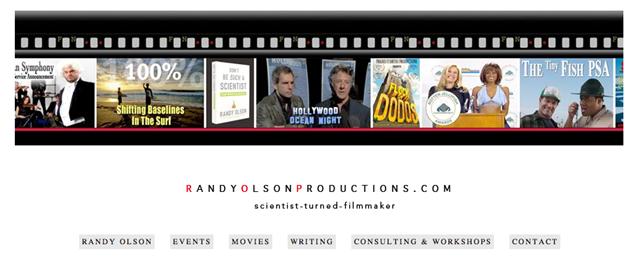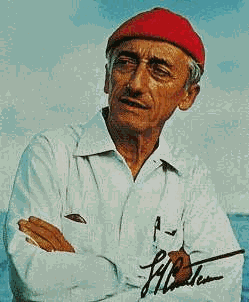#49) NEW WEBSITE: www.randyolsonproductions.com
June 28th, 2010
After spending three months shackled to their chairs inside our windowless office, Ryan Mitchell and Sabah Quadir have come up with a great new website to present pretty much all my media activities of the past few years. If anyone wants to hire them (they come hugely recommended) they can be contacted through the new website at www.randyolsonproductions.com

#48) The Decline of Civil Discourse in America: From Halberstam to EPIC 2014, “It is what we chose”
June 24th, 2010

IT IS WHAT WE WANTED. IT IS WHAT WE CHOSE (artwork stolen from the apparently defunct desipundit.com)
THE ALPHA AND OMEGA OF AMERICAN MEDIA NOISE
Though I did go to film school, I didn’t study journalism. My education in journalism began with a single life-altering book, David Halberstam’s, “The Powers That Be.” It was the alpha in my journey. I’m beginning to think the omega is the “EPIC 2014″ Flash essay I cited on Monday, which I first viewed in 2006.
In particular, a line from near the end of the EPIC 2014 piece has suddenly really resonated with me. I even quoted it in my last essay. The narrator says, “But EPIC is what we wanted. It is what we chose.”
As we take a short digression, I encourage you to give those two sentences some deep thought. “It is what we wanted. It is what we chose.”
#47) The SHIFTING BASELINE of Environmental Journalism: Our Santa Barbara oil spill essay as a case in point?
June 21st, 2010
With major environmental outlets like The Grist in peril and Columbia University suspending their graduate program in environmental journalism because there are simply no jobs out there for environmental journalists, there’s widespread concern that the overall quality of environmental reporting will inevitably suffer. I think I may have seen the consequences of this already over the past three weeks as I looked into the parallels between the Santa Barbara oil spill of 1969 and the current Gulf oil spill. Being nothing more than an amateur journalist, I was ready to muscle my way into the pack of professionals I expected to encounter in Santa Barbara . Instead, I found that I had the place to myself.

UCSB Special Collections: This is how many environmental journalists have visited it.
As George Santayana said, “Those who cannot remember the past are condemned to repeat it.” The current Gulf oil spill shows there is virtually NO evidence that anything was learned from the 1969 Santa Barbara oil spill. Sadly, there is no “legacy” to that event. Only eternally greedy oil companies and inept government.
ENVIRONMENTAL LEARNING AND OTHER COMMON FANTASIES
It’s become a popular sound bite to talk about, “All the amazing environmental legislation on water and air pollution that the 1969 Santa Barbara oil spill led to,” as if it was almost a good thing. Yeah, so what?
Let’s take a look at the sad truth of it as we do in this video. It’s 40 years later and the current Gulf oil spill shows that virtually NOTHING was learned from the 1969 Santa Barbara oil spill in terms of preventing disasters.
#45) Jacques Cousteau: Out with the old, in with the new
June 14th, 2010

JACQUES-YVES COUSTEAU: A man for his time, but ... today we live in a new media environment
Okay, now that I’ve managed to insult and infuriate every ocean lover on the planet, please hear me out.
Like all ocean lovers of my generation, I grew up on Jacques Cousteau. And having lived in Hawaii from ages five to ten, I can assure you I was a full-blooded ocean lover — enough to carry me through junior high, high school and college in Kansas and still become a marine biologist. I loved the guy, loved his show, and cherish the photo I have of me shaking his hand in Australia when I finally met him.
But that said, the times have changed.
#44) Where Have All The Science and Environmental Journalists Gone (long time passing)
June 10th, 2010
There’s been lots of talk about the decline in the number of science and environmental journalists in recent years, but I think Ty, Ryan and I saw it up close and personal this week. After my friend Joe Romm said to me in an email, “Why don’t you do something about the oil spill — that’s your area of expertise, right?” I got to thinking, it isn’t really, but he’s right — it is a good topic to take a look at from the perspective of “shifting baselines” — meaning changing perceptions — which is sort of my area.
On Monday I sent our producer, Ty Carlisle up to Santa Barbara to visit the Special Collections of the University of California, Santa Barbara. They have probably the best collection of photos and news clippings from the 1969 Santa Barbara oil spill, the environmental disaster that was a major force behind the birth of the modern American environmental movement. I warned Ty that they might be a little worn out, given the number of journalists that have probably visited this resources in the 50 days since the start of the Gulf oil spill.
In the meanwhile, I managed to track down Robert Sollen, now 89 years old, who was the superstar reporter and photographer at the Santa Barbara News Press on January 28, 1969 and the guy who received the mysterious phone call from an anonymous caller saying, “The ocean is bubbling around Platform A” (see photo below). He went on to cover the oil spill and it’s aftermath for decades and even in January of this year had yet another article about the risks of offshore drilling to California. He also authored a book on the over 100 year history of offshore oil exploration titled, “An Ocean of Oil.”
Given Mr. Soller’s seniority and depth of knowledge on the subject of offshore oil drilling, I felt certain he would be shagged out from having done too many interviews in the past 50 days, drawing comparisons of the 1969 Santa Barbara experience to the 2010 Gulf oil spill.
#43) When Important Leaders Blink on Television (it’s the equivalent of visual stuttering)
June 7th, 2010
Does it matter when someone blinks a lot during a television interview? Absolutely. When you’re a filmmaker, you know these things. Watch this clip from Michael Caine’s brilliant film on “acting for the camera” to get the definitive word on it.
#42) How “Nattering Nabobs of Negativism” Can Hurt Science
June 3rd, 2010
Anybody remember that phrase? No? Bueller? Anyone? Am I getting that old? Am I the only one left who remembers Spiro Agnew?
You know what the best part of writing a book is? It’s when you hear from people who “got it”. It’s when you say to yourself, “I sure hope some people connect with what I’m reaching for here,” and then you get emails and see reviews that show that people really did get it. Fortunately, I’ve had a bunch of these experiences concerning my writings on negativity, negation and negativism in science. And one of the best so far appeared this week in a review by a blogger called Skeptvet who is apparently a veterinarian specializing in examining CAM – complimentary and alternative medicine.